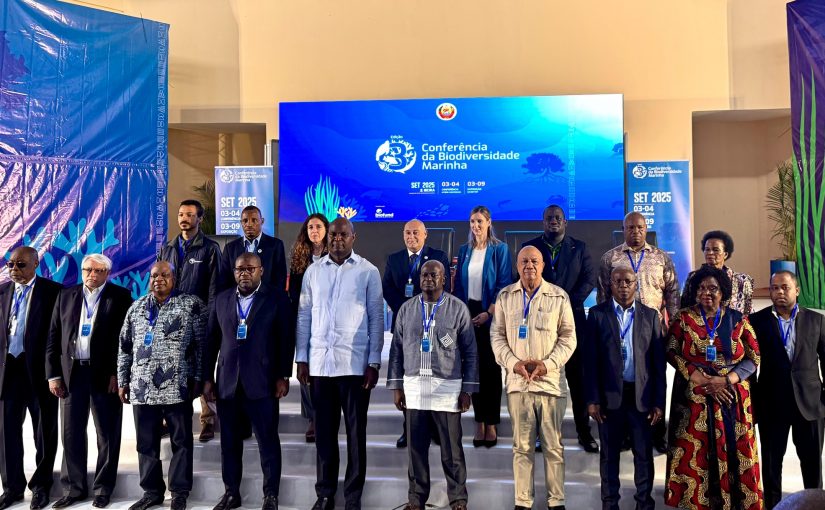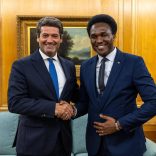Mozambique: Renamo Youth League demands release of former guerrillas - Watch
Mozambique: President Chapo calls for community- led marine protection and environmental education

Photo: página ProAzul Moçambique
President Daniel Chapo of Mozambique today called for a commitment to environmental education that involves the community in protecting the marine ecosystem, urging everyone to take responsible measures in managing marine resources.
“Environmental education is one of the cornerstones in ensuring the effective protection of the marine ecosystems that we all have the privilege of knowing. Environmental education should not be limited to so-called scientific knowledge resulting from academic research, but rather through ongoing interaction with our local communities who live off the sea,” President Chapo said.
The Mozambican Head of State called for efforts to protect the country’s natural and environmental capital during the opening of the third Marine Biodiversity Conference, being held this Wednesday and Thursday in the city of Beira, capital of Sofala province, central Mozambique.
“[We want] an environmental education that also values the knowledge of communities, sometimes called traditional or indigenous knowledge. It is necessary to intersect the two dimensions of knowledge that both possess in this process of biodiversity conservation, as both local and scientific knowledge are valuable and complement each other,” the President said.
President Chapo stated that the government was investing in a sustainable, inclusive, and job-generating blue economy, especially for youth and women. He also noted that one of the government’s “great concerns” is the responsible management of marine resources and, therefore, called for everyone’s contribution to observing protective measures.
“We urge all stakeholders to contribute to observing marine resource protection measures such as closed seasons, monitoring, and combating illegal fishing at sea and inland waters,” Chapo urged, calling for shared management with communities and investment in the processing of marine products at the local level.
The Head of State also called on academia to continue providing data and evidence from research in the search for solutions to protect resources.
“We want schools, universities, and communities close to the sea to be living laboratories, training citizens capable of innovating and caring for the resources of their natural environment,” he concluded.
Mozambique has committed to the Convention on Biological Diversity, particularly the Convention on Biological Diversity (CBD), and has embraced the goals defined in the Kunming-Montreal Global Biodiversity Framework, which aims to conserve at least 30% of land and sea by 2030, the president added.
These international commitments undertaken by Mozambique also align with United Nations goals for the protection of the marine ecosystem, with the Mozambican government promising concrete actions to protect these resources.
“As a government, we are aware that policy alignment is essential to bring greater coherence and predictability to the sustainable management of marine resources, facilitating the mobilization of investments from the private sector, philanthropy, and development partners in our country,” said the president.
On June 12, the United Nations Environment Programme (UNEP) selected the Mozambique Channel and the recovery of its coral reefs as one of three examples of international success in the restoration of marine ecosystems.












Leave a Reply
Be the First to Comment!
You must be logged in to post a comment.
You must be logged in to post a comment.